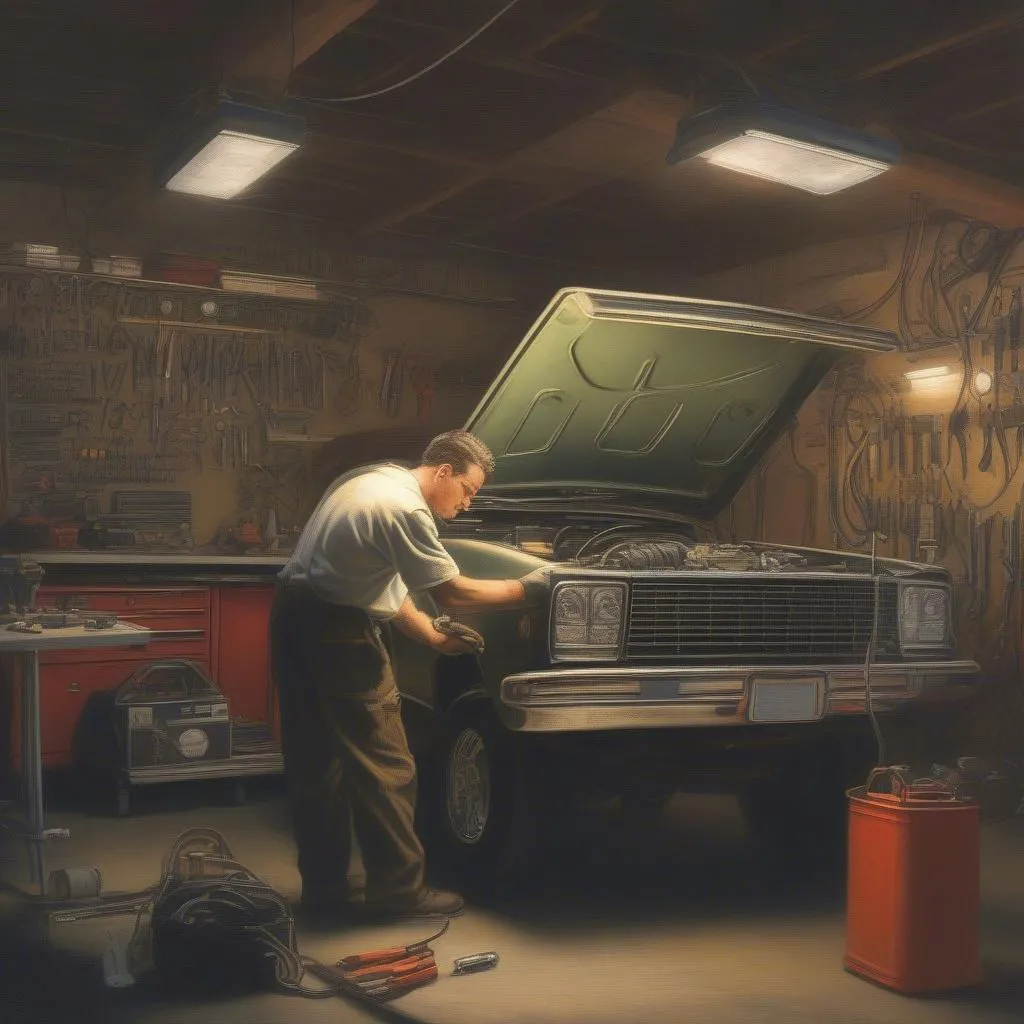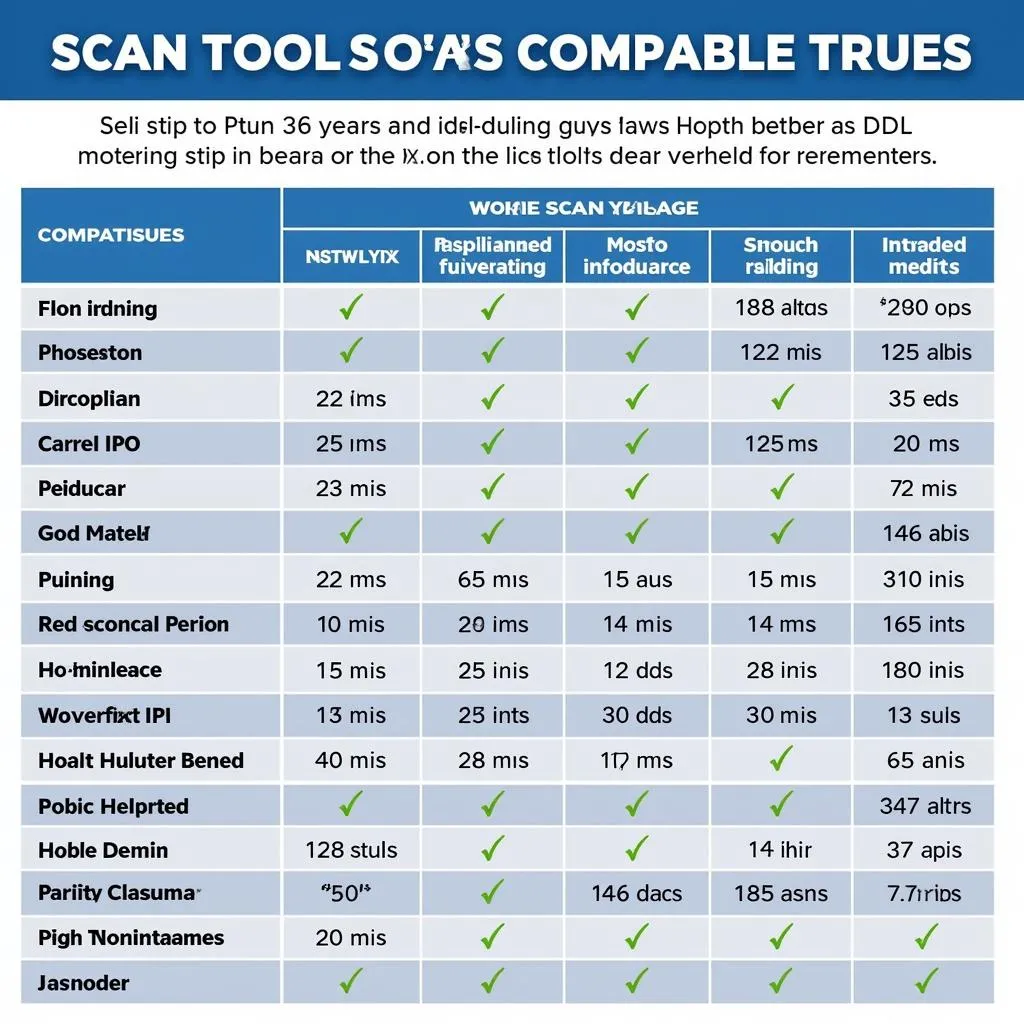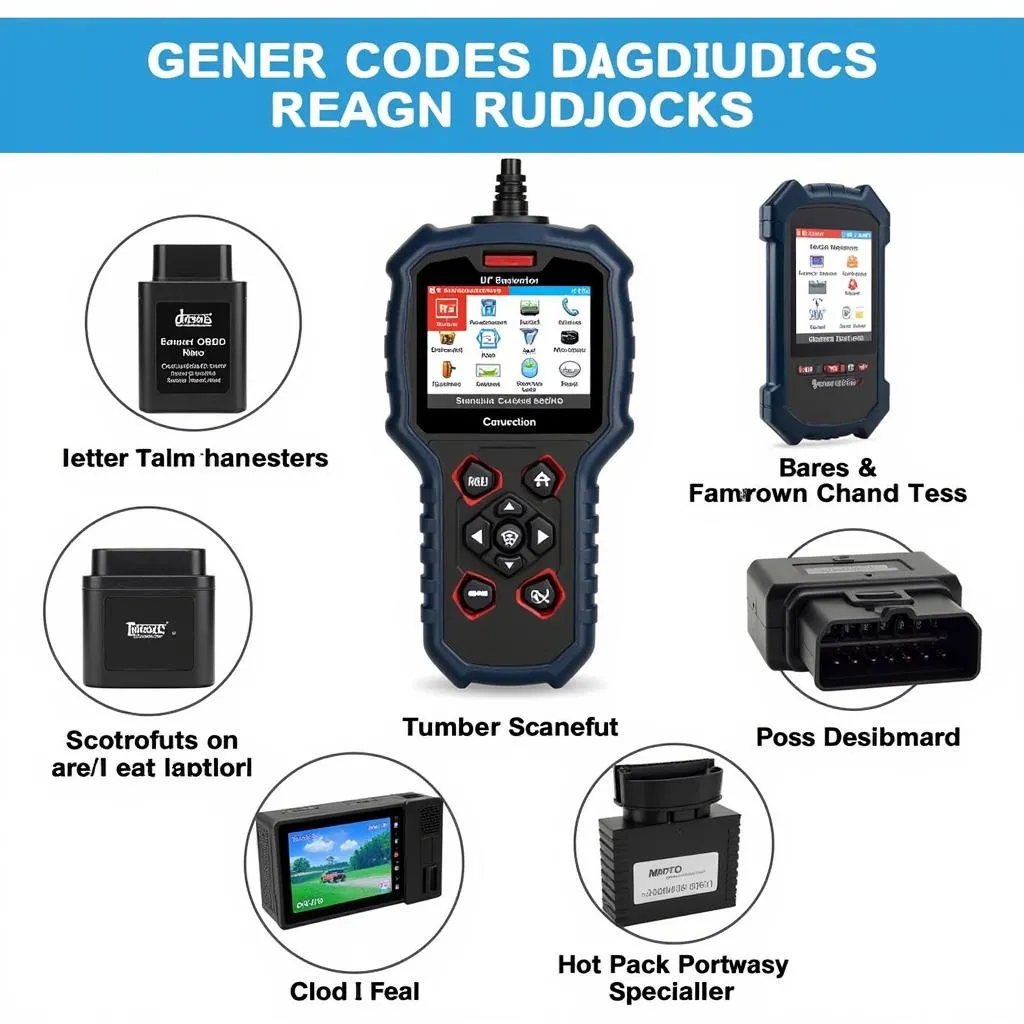Have you ever wondered what’s happening under the hood of your car when the check engine light flickers on? Maybe you’re a seasoned car enthusiast, or perhaps you’re just starting to learn the ins and outs of car maintenance. Regardless of your skill level, understanding how to diagnose car problems can save you time, money, and frustration. The key to unlocking the mysteries of your car’s electronic systems lies in the realm of **code readers & scan tools**.
Why Code Readers & Scan Tools Are Essential
Code readers & scan tools are powerful tools that allow you to communicate with your car’s onboard computer system. This communication is vital because modern vehicles are increasingly reliant on complex electronic networks, known as **Electronic Control Units (ECUs)**. When a problem arises, these ECUs store diagnostic trouble codes (DTCs), which act as digital breadcrumbs, leading you to the source of the issue.
**Imagine this:** You’re driving down a bustling street in **Los Angeles**, California. Suddenly, your car starts to sputter and lose power. You pull over to the side of the road, feeling a mix of panic and confusion. Instead of calling a tow truck, you grab your handy-dandy code reader. You plug it into your car’s OBD-II port, and within seconds, it reveals a code related to a faulty oxygen sensor. Now armed with this information, you can head to your local **AutoZone** or **Pep Boys** and confidently replace the sensor yourself, saving hundreds of dollars in the process.
 Code reader in action
Code reader in action
Understanding the Different Types of Code Readers & Scan Tools
The world of code readers and scan tools can seem overwhelming at first glance. However, understanding the basics can help you navigate this terrain with ease. Here’s a breakdown of the key types:
1. Basic Code Readers:
- What they do: Basic code readers, also known as **OBD-II readers**, are designed for simple tasks. They can read and clear DTCs, but their capabilities often end there.
- Who they’re for: If you’re a casual car owner who wants a basic tool for troubleshooting common problems, a basic code reader might be all you need.
- Examples: **Actron CP9690**, **BlueDriver Bluetooth Scan Tool**
2. Advanced Scan Tools:
- What they do: Advanced scan tools go beyond reading and clearing codes. They offer a wider range of features, including:
- Accessing live data streams, which provides real-time information about engine performance, sensor readings, and other critical parameters.
- Performing bi-directional control, allowing you to activate and test components, such as solenoids, actuators, and pumps.
- Reading and clearing codes for specific modules, such as ABS, SRS (airbag), and transmission systems.
- Who they’re for: Advanced scan tools are perfect for serious DIY enthusiasts, mechanics, and professionals who need in-depth diagnostic capabilities.
- Examples: **Launch X431 Pro3**, **Autel MaxiScan MS509**
3. Dealer-Level Scan Tools:
- What they do: Dealer-level scan tools, often referred to as **Dealer Scanners**, are the most sophisticated tools on the market. They provide access to all systems and functions within a specific vehicle’s make and model. This includes advanced programming, calibration, and reprogramming capabilities.
- Who they’re for: Dealer scanners are primarily used by authorized dealerships and professional repair shops. They are essential for comprehensive diagnostics and repairs, especially for modern vehicles with complex electronics.
- Example: **Dealer Scanner For European Cars**
Finding the Best Code Reader & Scan Tool for DIY
The best code reader or scan tool for you depends on your needs and budget. Here are some essential factors to consider:
- Compatibility: Make sure the tool is compatible with your vehicle’s make, model, and year. Most modern vehicles use the OBD-II standard, but there are some exceptions, especially for older cars.
- Features: Consider the features you need. Do you just want to read and clear codes, or do you need advanced live data access and bi-directional control?
- Ease of Use: Choose a tool with a user-friendly interface and clear instructions.
- Price: Prices can vary significantly depending on the features and brand. Set a budget and stick to it.
FAQs: The Most Common Questions About Code Readers & Scan Tools
Q: Can I use a code reader & scan tool to reset my check engine light?
A: Absolutely! Most code readers and scan tools allow you to clear DTCs, which in turn will turn off the check engine light. However, it’s important to note that simply clearing the code doesn’t address the underlying problem. You should troubleshoot the issue and address it to prevent it from recurring.
Q: Do I need a special tool for specific car brands?
A: While many code readers and scan tools are compatible with a wide range of vehicles, some manufacturers have proprietary systems that require specialized tools. For example, **European car brands**, such as **BMW**, **Mercedes-Benz**, and **Audi**, often have their own unique protocols. If you own a car from one of these brands, it’s important to research compatible tools.
 European car brands
European car brands
Q: Is it safe to use a code reader & scan tool on my car?
A: When used correctly, code readers and scan tools are perfectly safe. However, it’s crucial to follow the manufacturer’s instructions and avoid making any unauthorized changes to your vehicle’s electronic systems.
Q: Where can I find a code reader & scan tool?
A: You can find code readers and scan tools online and at local automotive stores, such as **AutoZone**, **Pep Boys**, and **Advance Auto Parts**.
Unlock Your Car’s Secrets: A World of Possibilities
Code readers and scan tools open up a world of possibilities for understanding and maintaining your car. You can:
- Identify and resolve problems before they escalate: Early detection of issues can prevent major breakdowns and expensive repairs.
- Save money on diagnostics and repairs: By diagnosing problems yourself, you can avoid the expense of taking your car to a mechanic.
- Gain confidence in your car maintenance skills: Understanding your car’s electronic systems empowers you to take control of its maintenance.
 Mechanic working on car
Mechanic working on car

